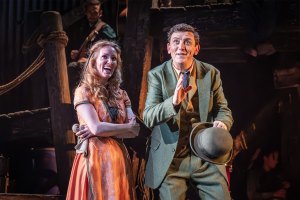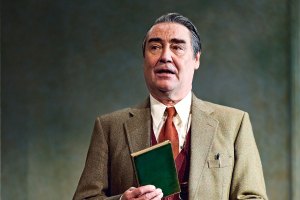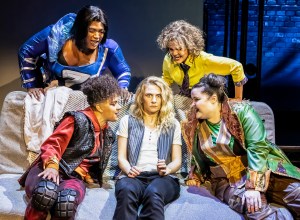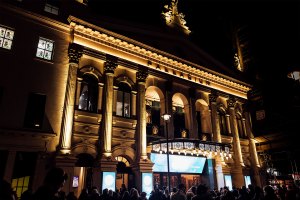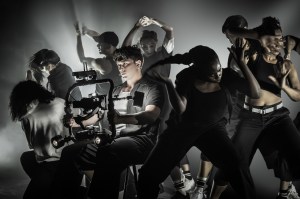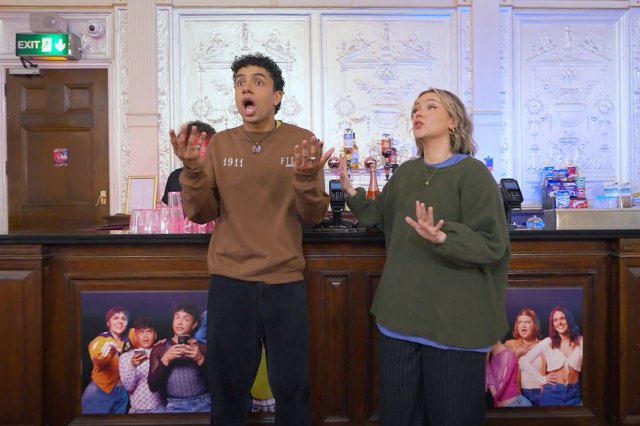Ivo van Hove’s adaptation of ”A Little Life” – Edinburgh International Festival review
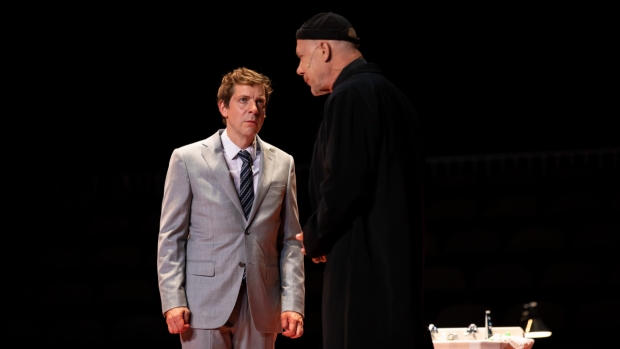
© J Shurte
I haven’t read Hanya Yanagihara’s novel, on which this play was based, but I was warned! Everyone I know who has read A Little Life speaks of it in hushed tones, saying in one breath that it’s one of the best books that they’ve ever read, and in another that its depiction of trauma is one of the most harrowing they’ve ever experienced. As if to mirror this, Ivo van Hove’s adaptation of the novel, which appears as part of International Theater Amsterdam’s residency at the Edinburgh International Festival, clocks in at more than four hours of intense dialogue in Dutch with English surtitles. Whether you read the novel or watch the play, it’s a feat of endurance!
It’s a story about a group of four friends who move to New York City to pursue their high-level careers, and as the play begins it feels like a buddy comedy, with the friends lounging around in an apartment, joshing about the way their lives have turned out.
The focus quickly narrows onto the experience of Jude, however, about whom almost everything is a mystery; his parents, his origins, his sexuality. One of his friends remarks that nearly every conversation about Jude ends with “I don’t know.” Then there’s Jude’s bleeding, which begins in mysterious circumstances with mundane explanations, but soon flows in rivulets, as a symptom of Jude’s traumatic past. He’s a high-flying New York lawyer, but has survived the most appalling sexual and physical abuse as a child, abuse which van Hove (and, I’m told, Yanagihara) portrays unflinchingly to the audience.
This subject material is, at times, almost impossible to watch. Van Hove does a horrifyingly effective job at depicting the impact of the abuse without ever becoming exploitative. The raw shock of it comes mostly through evocation and the power of memory. The self-harm to which Jude is driven, however, is depicted explicitly and uncompromisingly, though always with an exploration of its causes and its enduring effects on the grown-up adult. This isn’t a play for the queasy.
Van Hove’s take on the story is masterly, however. In his productions that I’ve seen in the past, I’ve often wearied of him making his point too explicitly or too remorselessly, but there’s none of that here. Instead, Jude’s trauma is depicted through subtle changes of colour, lighting or emotional tempo. The fragmented narrative works brilliantly, too, telling Jude’s story of the present interspersed with the memories of his dreadful past. Therapy sessions break in every so often as a way of trying to help him cope.
The performances are riveting, particularly the central one. As Jude, Ramsey Nasr is one of those actors that you just can’t take your eyes off. He’s required to put his body through some pretty dreadful indignities in this production, and he throws himself into the part with such empathy that his identification with the character is complete. Hans Kesting, who plays all of Jude’s abusers, is monstrous but also compelling: you can see how effectively his persona could deceive someone vulnerable.
If there’s a criticism, then it’s with so much suffering being poured onto one character. He has so little joy in his life that we only rarely smile with him, and that means there is little in him to admire beyond his capacity for suffering.
This only occurred to me in the cold light of reflection after the final curtain, however. During the play itself, I found myself completely engulfed in an emotional cauldron that pushed all of my responses to the brink. At the end of the first half, as the lights went up for the interval, the audience was so stunned that nobody applauded or even moved. This was four difficult hours, but its power was unforgettable.




